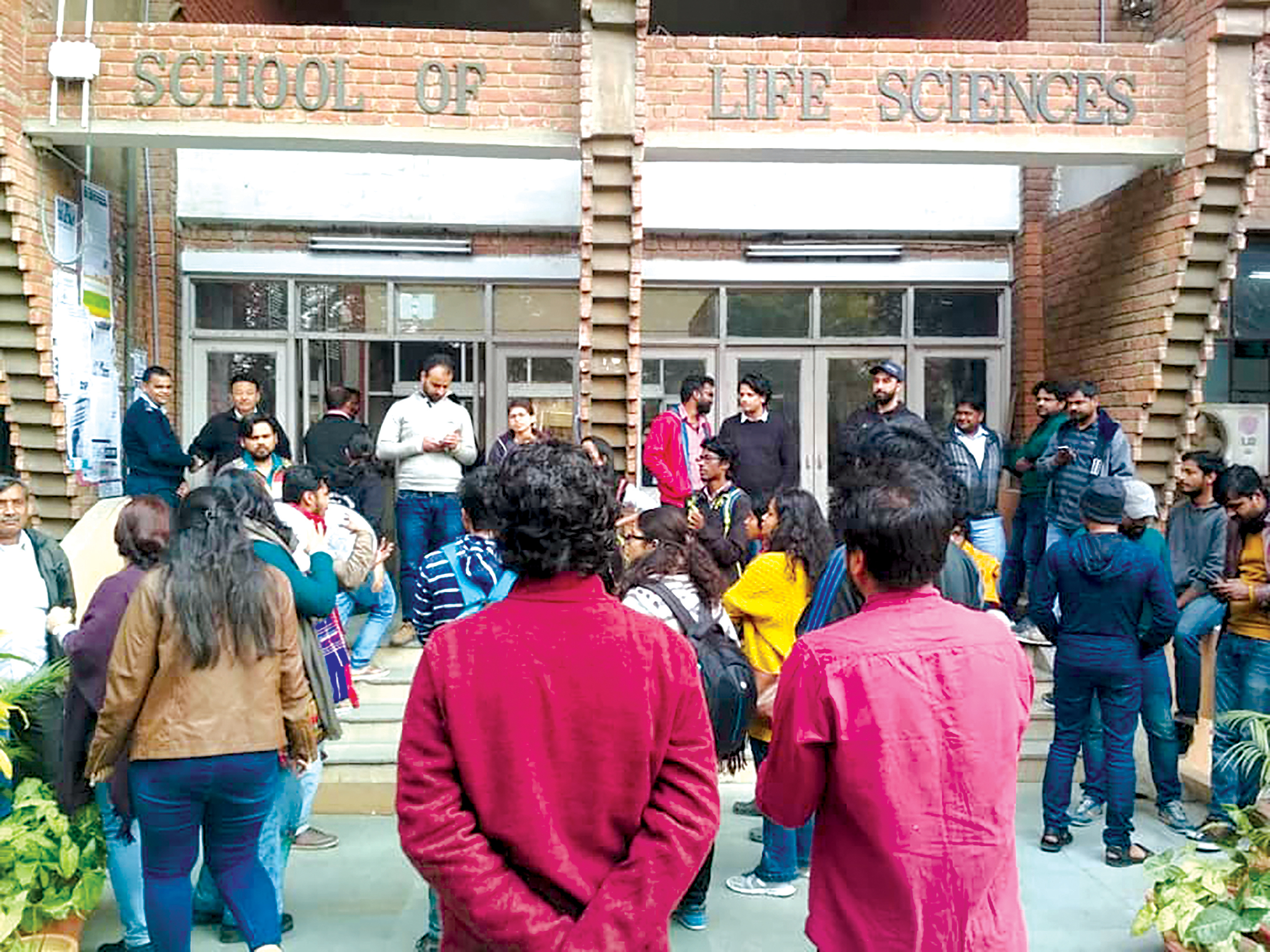After two cut-off lists, 231 research positions in JNU are still vacant. But the university’s administration does not seem eager to fill them
For the second time in about two months, the Jawaharlal Nehru University is facing allegations of not being transparent about its admission process. In June, the university’s 2019 entrance exam came under the scanner for discrepancies, including incorrect answer keys. Then, early this month, a petition was filed in the Delhi High Court accusing the JNU administration of dragging its feet on filling 231 MPhil and PhD positions.
The petition, filed by two MPhil aspirants Afzal Husain and Rahul, who uses only his first name, claims that in spite of so many seats being vacant, the JNU administration did not release the third cut-off list, thereby depriving them of a chance to get higher education.
Instead of a third-cut off list, the university issued a notice calling students who made the initial cut-offs but did not take admission for some reason. This was against the standard rules of admission, the petitioners alleged.
The petitioners called the move “whimsical” and have requested the court to intervene.
Husain, who has applied for an MPhil in Arabic under the General category, says at least six seats in the department are still to be filled. He fell short of making it to the second cut-off list by a mere 0.1% of the minimum grade. So, he argues, he is certain to make it to the third list, if it is released, that is.
The administration’s “arbitrary decision” to not release another cut-off list, Rahul argues, is unlawful and against the spirit of providing equal opportunities in educational institutions to the backward classes. Rahul, who plans to do an MPhil in Linguistics under the Scheduled Caste category, fell short by 1.01% of the minimum in the previous list.
For the MBA programme, on the other hand, 13 lists were released to fill 50-odd seats.
But why is the JNU administration reluctant to fill the vacant seats? “This admin-istration wants to destroy JNU,” said Husain. “It was after sending several letters and emails to the admission authorities that Rahul and I approached the high court. JNU is a university known for research. The administration is hellbent on cutting down research seats through various means, be it through the implementation of the UGC Gazette Notification 2016 that caused many departments to suffer or simply by keeping seats vacant.”
The first hearing on the petition was held on September 13. According to the petitioners, JNU sent a junior lawyer to the hearing who claimed she hadn’t received any instructions from the administration regarding the case. The court then issued a notice to JNU to be prepared for the next hearing on October 17.
“I’m not doing this for just myself but for the sake of education, research, and for those deserving candidates who should have been admitted,” said Husain. “My only prayer to the high court is that seats should be filled, and a subsequent list must be released so national resources are utilised to the fullest.”
Newslaundry contacted JNU’s director of admissions for comment on the matter, but did not get a response. This story will be updated if a response is received.
www.newslaundry.com





